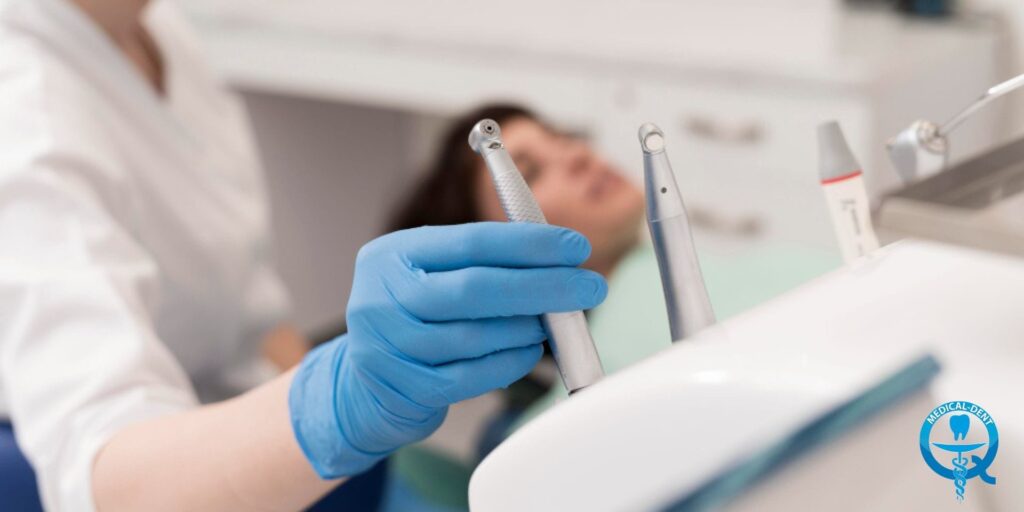Tooth decay, or tissue necrosis, is the consequence of untreated pulpitis. It requires an immediate visit to the dentist, otherwise it can lead to gum disease and serious problems throughout the body.
Tooth decay - what is it and where does it come from?
Tooth decay is the consequence of untreated pulpitis. We wrote more about this in the article "Tooth inflammation - unbearable pain".
Returning, when bacteria enter the pulp they cause inflammation. This, over time, can lead to necrosis and decay of the soft tooth tissue.
The causes of dental gangrene are the lack of proper oral hygiene and, above all, untreated caries. A diet rich in carbohydrates, which are a breeding ground for bacteria, is not insignificant.
And how do you know when decay has started in the mouth? Most often there is a sharp pain, although this is not standard in the case of very large cavities. In addition, there is a very unpleasant odour from the mouth and a toothache when biting. In addition to this, there will be visible cavities in the mouth and the tooth itself will be brown in colour.
Complications
If tooth gangrene is not treated, there are very serious consequences. First, abscesses can develop, followed by periostitis, which can lead not only to the loss of the tooth, but also others adjacent to it.
That's not all! The moment bacteria enter the bloodstream, rheumatoid arthritis, nephritis, endocarditis, stroke or sepsis can occur.
We wrote more about the serious consequences of the condition of teeth on health in the article "Decayed teeth a danger to the health of the whole body".

Tooth decay - treatment
Obviously, it is best not to let it happen. You can take care of this by taking care of your oral hygiene, which means brushing your teeth regularly, but also flossing.
And absolutely regular visits to the dentist. Firstly, regular hygiene - the dentist will remove the build-up of plaque and tartar, which are common causes of tooth decay. Secondly, the dentist will recommend treatment at an early stage of cavity formation. Thus, you will take care of your health, but also avoid pain and considerable expenses.
What if you are already struggling with tooth decay? Do not delay and make an appointment as soon as possible. This one will have you take an x-ray to be able to determine how big the decay is and how badly the tooth is damaged. He will then clean the tooth, removing the tissues that have been affected by the decay. It may also be the case that root canal treatment is required in your case. Finally, the dentist will place a filling or crown.
If you want to learn more about this topic we recommend our articles "Filling a tooth in the UK - types of fillings in the UK and their prices" and "Crowns for teeth in the UK - everything you need to know".
However - although this is always a last resort - a tooth may be so damaged that the only option is to have it removed. Remember not to leave an empty tooth space. We wrote about why this is important and what options you can use in the article "A missing tooth - when you need to fill the gap left by an extracted tooth'.

Cost of treatment
It is difficult to determine as it depends on the condition of the tooth and the treatment recommended. The cost of a root canal treatment at our practice starts at £220, a filling at £130 and an extraction at £110.
If you are struggling with tooth decay, don't delay and don't worry about the costs. These at our practice can be spread over instalments. Importantly, the first 12 months are zero interest, so you only pay back the amount you spent.
If you want to learn more we recommend our article "Instalment scheme for dental treatment in the UK" . And if you have any further questions, please feel free to contact.
Our instalment system is safe and regulated by Financial Conduct Authority (FCA number 619628).

